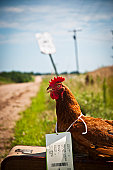wilfordtaylor
About wilfordtaylor
The High-Stakes Game of Chicken: Risk, Reward, and Reputation in the Casino World

The High-Stakes Game of Chicken: Risk, Reward, and Reputation in the Casino World
The casino world, often perceived as a glittering landscape of chance and fortune, is in reality a complex ecosystem where strategic thinking, psychological warfare, and calculated risks reign supreme. Beyond the flashing lights and the clatter of chips lies a subtle, yet potent game played at every level, from the casual gambler to the high-rolling whale – a game of ”chicken.” This isn’t the reckless teenage dare on a deserted road, but a sophisticated dance of anticipation, bluff, and brinkmanship, where the stakes are not just money, but also reputation, power, and the thrill of victory. In this article, we delve into the fascinating aspects of this ’chicken’ game within casinos, examining its various forms, the psychological underpinnings, and the long-term consequences for those who dare to play.
Understanding the Core Principles of Casino Chicken
The classic game of chicken involves two drivers speeding towards each other. The first to swerve is deemed the ”chicken road feedback (chicken-road-365.com),” losing face but avoiding a potentially fatal collision. The one who holds their nerve, forcing the other to yield, wins the game, gaining bragging rights and a boost to their ego. In the casino context, the core principle remains the same: testing the limits of an opponent’s resolve and willingness to back down. However, the ’collision’ is usually metaphorical, involving financial ruin or loss of status.
The casino version of chicken manifests in various forms, often subtly intertwined with the traditional games themselves. It could be a poker player pushing all-in with a weak hand, attempting to intimidate their opponent into folding. It could be a high-roller betting increasingly large sums, daring the casino to increase their comps or risk losing their business. Or it could even be the casino itself, tightening the rules or increasing the house edge, testing how much the players will tolerate before seeking a more favorable environment.
The Poker Face-Off: Bluffing and Psychological Warfare
Poker is arguably the purest form of the casino chicken game. At its heart, poker is about reading your opponents, understanding their tendencies, and exploiting their weaknesses. Bluffing, a cornerstone of poker strategy, is essentially a challenge: ”I have a strong hand, are you willing to risk your chips to call my bluff?” The higher the stakes, the more intense the game of chicken becomes. A well-timed bluff can force even the most skilled players to fold a winning hand, while a failed bluff can result in devastating losses.
The psychological aspect of poker plays a crucial role in the chicken game. Players attempt to project an image of confidence or vulnerability to mislead their opponents. Slow playing a strong hand, for example, is a form of chicken, baiting opponents into betting into a pot that they are unlikely to win. Similarly, making small, seemingly insignificant bets can be a way to gauge an opponent’s reaction and determine the strength of their hand. The best poker players are masters of deception, skilled at reading tells and exploiting psychological vulnerabilities to gain an edge.
The High-Roller’s Gamble: Loyalty vs. Profit
For casinos, attracting and retaining high-rollers is a crucial aspect of their business. These whales, as they are often called, can generate significant revenue, and casinos are willing to go to great lengths to cater to their needs. However, the relationship between a casino and a high-roller is often a delicate balancing act, a constant game of chicken.
High-rollers often test the limits of a casino’s generosity, demanding increasingly lavish comps, such as free suites, private jets, and personalized service. They are essentially daring the casino to say ”no,” knowing that the casino risks losing their valuable business to a competitor. The casino, in turn, must carefully assess the long-term value of the player, weighing the cost of the comps against the potential revenue they generate. If a casino feels that a high-roller is becoming too demanding or is no longer generating sufficient profit, they may subtly reduce the comps or even ”back off” the player, effectively telling them that their business is no longer welcome. This is a high-stakes game of chicken, with both sides risking significant losses.
The Casino’s Edge: Pushing the Limits of Acceptability
Casinos themselves also engage in the game of chicken, constantly testing the limits of what players are willing to accept. They may subtly tighten the rules of certain games, increase the house edge, or reduce the generosity of their rewards programs. These changes are often implemented gradually, in an attempt to minimize player backlash. The casino is essentially asking: ”How much can we take before the players start going elsewhere?”
For example, a casino might reduce the payout for blackjack from 3:2 to 6:5. This seemingly small change significantly increases the house edge, but many casual players may not even notice the difference. However, experienced players will quickly recognize the change and may choose to play at a different casino that offers more favorable odds. The casino must carefully weigh the potential increase in profits against the risk of alienating its most valuable customers. The introduction of new fees, like resort fees, is also a form of casino chicken, seeing what guests will accept before choosing other accommodations.
The Psychology of Chicken: Fear, Ego, and Risk Tolerance
Understanding the psychology behind the game of chicken is crucial to understanding its prevalence in the casino world. Fear, ego, and risk tolerance all play significant roles in shaping the decisions of both players and casinos.
- Fear of Loss: The fear of losing money is a powerful motivator for both players and casinos. Players are often hesitant to make large bets, even when they have a statistical advantage, for fear of losing their entire bankroll. Casinos, in turn, are hesitant to offer overly generous comps or risk alienating high-rollers, for fear of losing revenue.
- Ego and Reputation: Ego plays a significant role, particularly in poker. Players often engage in bluffing contests, not just to win money, but also to assert their dominance and build their reputation. Similarly, high-rollers may demand increasingly lavish comps, not just for the material benefits, but also to maintain their status and prestige.
- Risk Tolerance: Different individuals have different levels of risk tolerance. Some players are naturally more risk-averse, while others are more comfortable taking chances. Similarly, some casinos are more willing to experiment with new rules and promotions, while others prefer to stick to tried-and-true methods. Risk tolerance influences how much both players and casinos are willing to wager and what level of risk they will tolerate.
Strategies for Playing (and Avoiding) the Casino Chicken Game
Whether you are a player or a casino operator, understanding the dynamics of the casino chicken game is crucial for success. Here are some strategies for playing (and avoiding) the game:
For Players:
- Know Your Limits: Before you even step into a casino, set a budget and stick to it. Don’t be tempted to chase losses or make bets that you can’t afford to lose. This helps you avoid being pushed into a corner in a chicken game.
- Understand the Odds: Educate yourself about the odds of each game and make informed decisions. Don’t fall for common gambling fallacies or be swayed by superstition. Knowledge is your best weapon.
- Control Your Emotions: Don’t let your emotions dictate your betting decisions. Stay calm and rational, even when you are losing. Avoid tilt, which can lead to reckless behavior and poor choices.
- Be Observant: Pay attention to the behavior of your opponents and the casino staff. Look for tells that can give you an edge.
- Walk Away: If you are feeling uncomfortable or pressured, don’t be afraid to walk away. There is no shame in admitting defeat, especially when your financial well-being is at stake.
For Casino Operators:
- Know Your Customers: Understand the demographics, preferences, and risk tolerance of your customer base. Tailor your offerings and promotions to appeal to their specific needs.
- Be Transparent: Be upfront about the rules of the games and the house edge. Don’t try to mislead or deceive your customers. Honesty builds trust and fosters long-term loyalty.
- Offer Fair Comps: Provide comps that are fair and reasonable, based on the player’s level of play. Don’t be afraid to reward loyalty, but be mindful of the bottom line.
- Monitor Player Behavior: Keep an eye on player behavior to identify potential problems, such as gambling addiction or money laundering. Take steps to address these issues proactively.
- Adapt and Innovate: Stay ahead of the curve by adapting to changing player preferences and embracing new technologies. Be willing to experiment with new games and promotions, but be mindful of the risks.
The Long-Term Consequences: Winning and Losing in the Casino Chicken Game
The casino chicken game can have significant long-term consequences for both players and casinos. For players, winning the game can lead to short-term financial gains and a boost to their ego. However, consistently playing the chicken game can also lead to reckless behavior, gambling addiction, and financial ruin. For casinos, winning the game can lead to increased profits and market share. However, consistently pushing the limits can also alienate customers, damage their reputation, and ultimately lead to a decline in business.
Ultimately, the key to success in the casino world is not to always win the chicken game, but to understand the dynamics of the game and make informed decisions that are in your best long-term interests. Knowing when to hold your nerve and when to back down is crucial for navigating the complex and often treacherous landscape of the casino world.

Conclusion: A Delicate Dance of Risk and Reward
The game of chicken in the casino is a fascinating and complex interplay of risk, reward, and psychological manipulation. It’s a constant test of wills, where players and casinos alike push the boundaries of acceptable behavior in pursuit of financial gain and personal validation. Whether it’s a poker player bluffing their way to victory, a high-roller demanding ever-increasing comps, or a casino subtly tightening the rules, the game of chicken is an ever-present force in the casino world. By understanding the dynamics of this game, both players and casinos can make more informed decisions, avoid costly mistakes, and ultimately increase their chances of long-term success. But remember, as in any game of chicken, knowing when to swerve is often the smartest move.

No listing found.
